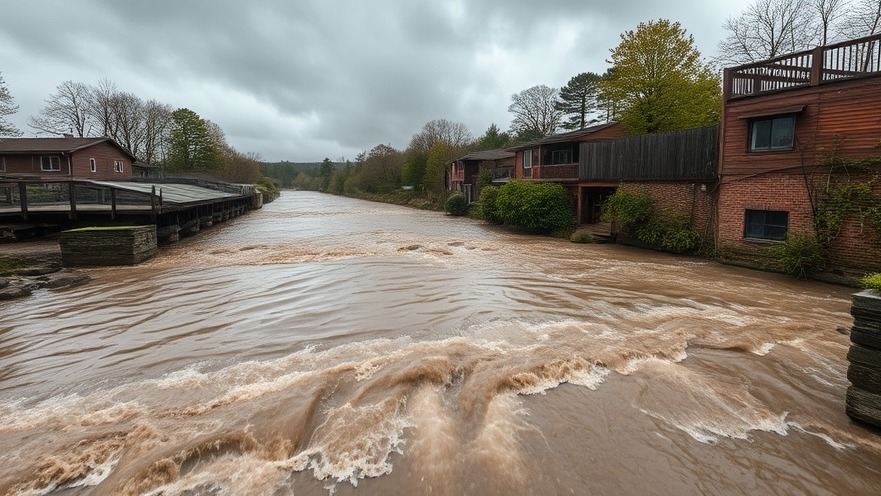
Frio River Flood Alert: What You Need To Know
The Frio River is currently on track to reach major flood stage, raising concerns across the South Texas region. Following heavy rainfall on July 14, 2025, multiple flood warnings have been issued for the river, particularly affecting areas from Concan to Uvalde.
The National Weather Service has projected that the river would crest at approximately 16 feet around 11 AM near Concan and escalate to 19 feet by 5 PM near Uvalde. These forecasted levels indicate significant flood risks, underscoring the need for residents to remain vigilant and prepared to seek higher ground if necessary. With rainfall amounts reaching 5 to 6 inches in some parts of the Frio River basin, the threat of substantial flooding is very real.
Why It Matters: Implications for the Community
This unfolding situation is not merely a weather event; it encapsulates the complex interplay between environmental change and community safety in the San Antonio area. For many families living along the Frio River, the forecasted flooding could severely disrupt lives, affecting homes, roads, and local businesses.
Flooding can also impact public services—particularly schools and hospitals—raising additional challenges for local officials. Notably, the rapid rise in water levels demands coordinated emergency responses from local governments and public safety agencies to safeguard residents and minimize property damage.
Historical Context: Learning from the Past
South Texas has a history of severe flooding due to heavy rains, particularly within the spring months. Each major flood event has left a lasting impact on the community's infrastructure and public policy. The devastation left in the wake of Hurricane Harvey in 2017 serves as a cautionary example, illustrating the crucial need for advanced weather preparedness and sustainable urban planning.
Awareness of previous flooding events can aid residents in understanding the gravity of their current situation. As communities prepare for potential evacuations and disruptions, knowing how past floods were managed can shape effective response strategies.
Future Predictions: Is This the New Norm?
Meteorologists are increasingly drawing connections between climate change and intense weather patterns, suggesting that residents in San Antonio and surrounding areas may experience more frequent and severe flooding events. Potential shifts in climate could lead to heavier rainfall and changing flood dynamics, emphasizing the need for resilient infrastructure and proactive measures.
With these trends in mind, local authorities are urged to innovate solutions for flood control, enhanced drainage systems, and public education campaigns geared towards prevention. Engaging the community in discussions about long-term sustainability will be essential in mitigating future disasters.
Actionable Steps for Residents
As residents monitor the situation, here are critical actions to consider:
Have a Plan: Prepare an emergency plan that includes evacuation routes and a communication strategy with family members.
Stay Informed: Regularly check weather updates and local news reports for real-time information and updates from community officials.
Emergency Supplies: Assemble an emergency kit with essential items including food, water, medicines, and first aid supplies.
Community Involvement: Supporting One Another
While local agencies play a vital role in managing emergencies, community collaboration is equally important. Residents are encouraged to look out for neighbors—especially the elderly or those with disabilities—who may need assistance during this critical time. Sharing resources and information can bolster communal resilience against the threat of flooding.
Conclusion: Staying Safe in Uncertain Weather Conditions
In conclusion, the forecast of the Frio River reaching major flood stage is an urgent reminder for the San Antonio community. By being proactive and prepared, residents can mitigate risks and contribute to a safer environment for themselves and their neighbors. Stay safe, stay informed, and work together during these challenging times.
 Add Element
Add Element  Add Row
Add Row 



Write A Comment